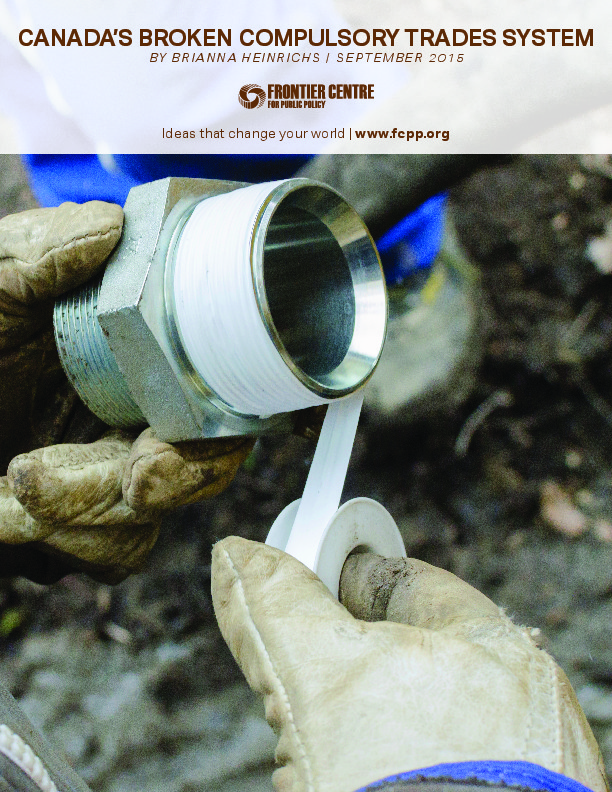- If a trade is compulsory, a person cannot legally work in the trade unless he or she carries a certificate of qualification or is registered in an apprenticeship program. If a trade is voluntary, a person can seek certification if desired, but he or she can also legally work without it.
- Compulsory trades are thought by some to enhance consumer protection and worker safety. Some people also advocate for compulsory certification in an attempt to raise the prestige of a trade.
- Compulsory certification of trades can have negative, unintended consequences, particularly, fewer workers or providers of a service and more-expensive services or products.
- Evidence is lacking to demonstrate that compulsory trades increase safety and enhance consumer protection. Policies that unnecessarily restrict the supply of workers are undesirable, especially if governments and employers are concerned about a shortage of skilled trade workers.
- The problems compulsory certification are meant to mitigate can often be addressed through alternative measures such as voluntary certification, health and safety legislation or technological innovations that allow buyers to communicate with each other about the quality of work that companies or people provide.
- In the United States, occupational licensing has resulted in anti-competitive behaviour on the part of many licensing boards. Workers tend to face more mobility restrictions in the United States than in Canada
- Provinces have varying numbers of compulsory trades and choose different trades to designate as compulsory. A lack of consistent policies across the country might be an indication that the policies are a result of lobbying efforts rather than public safety concerns.
- The regulatory regimes for the cosmetology industry in some provinces are cause for concern, as licensing boards with a potential conflict of interest charge ongoing fees for authorization or a licence to work. If provinces keep or continue to designate trades
- as compulsory, they need to be transparent about the procedures used to determine if a trade will be compulsory and upfront about requirements to legally work in a trade.
Canadian Property Rights Index 2023
A Snapshot of Property Rights Protection in Canada After 10 years



